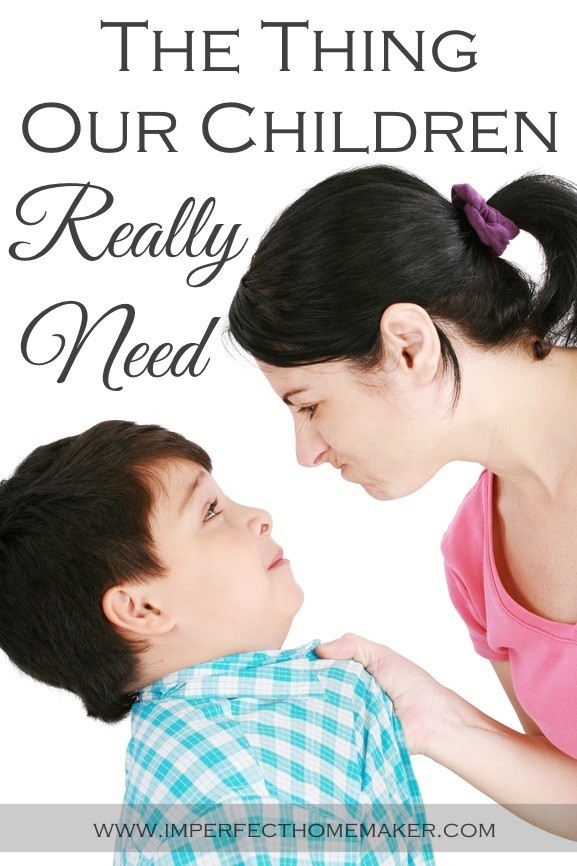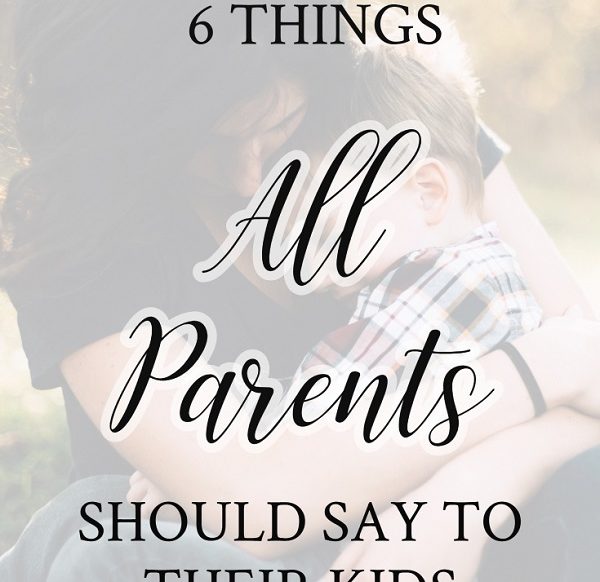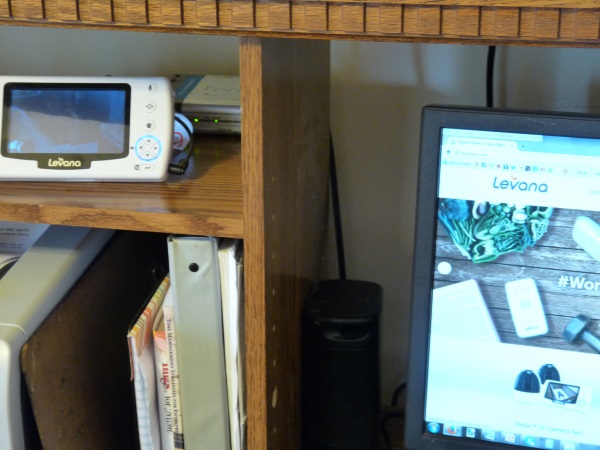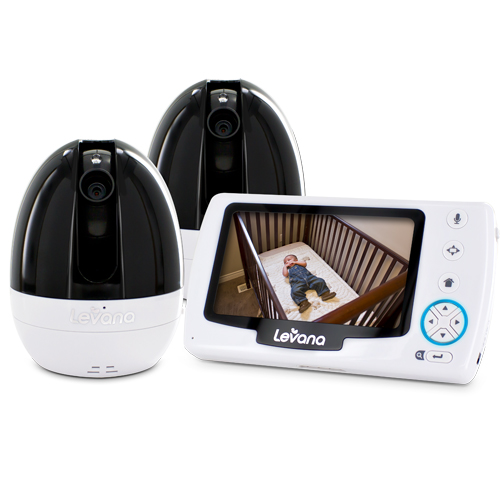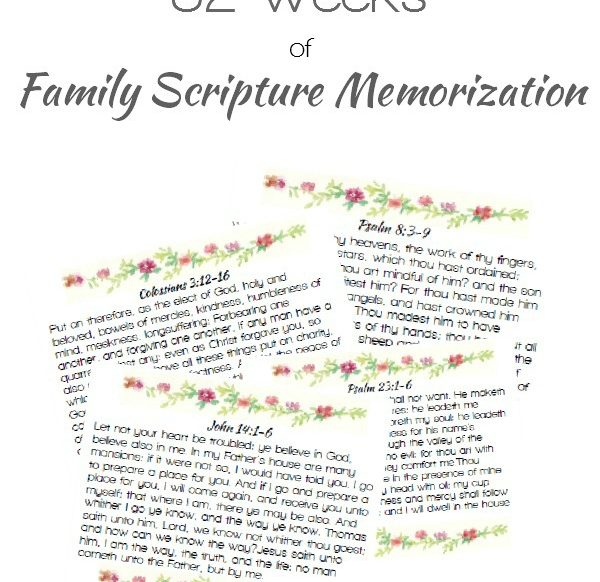One of the most important things I want my children to learn is to respect authority. They will never learn to be obedient to God if they cannot first learn to be obedient to the adults God has placed over them. For that reason, we are very careful to ensure they are being respectful when speaking to adults who are in authority over them.
This is not about being a drill sergeant; this is about helping your child understand his or her proper role in life. Everyone has authorities, even adults, and teaching children to submit to those authorities from an early age will help them their entire life. If your child has a hard time respecting authority now, what will he do when he has his first job and he doesn't want to do what his boss says? You're not doing your child any favors by allowing him to do and say whatever he wants to his authorities.
Here are six things my children are not allowed to say to adults:
(Note: adults here means those that mom and dad have authorized to be over our child. I don't expect my child to just mindlessly do something just because a random adult told him he had to. Teaching children who to obey and when to obey is an important topic too!)

Also, before you read any further, let me stop and say that this is in no way meant to encourage a rule-based, break-your-child's-spirit parenting philosophy. I think a lot of people are interpreting it that way. PLEASE don't parent your kids based on a set of rules. That is dangerous, and a sure-fire way to make sure your kids end up either 1. not knowing how to think for themselves or 2. rebelling against authority. Christian parents must focus on the heart of the matter, treat their children respectfully, show them their love by their actions, and treat their children with gentleness.
However, God has placed you and other adults (teachers, policemen, babysitters, etc.) as authorities in your child's life and God himself commanded children to obey and honor their parents. We as adults are commanded by God to obey our authorities too. The following list is an idea of how that plays out in day-to-day life — again, it's not a set of rules. Being respectful just means properly relating to the authorities that are over them.
Since there have been so many concerns from people who are looking at this through so many lenses (different life experiences, etc.), I'm updating this with specific examples rather than just making these things seem like a blanket statement. Let me say it one more time — this isn't about setting unrealistic expectations and then punishing your child when he doesn't meet them. Nor is it about making certain words taboo. This is about training your children in the proper way to relate to the adults who are over them. It's not the words themselves that are the problem; it's the attitude behind them. A child could just as easily display the same attitude using a different set of words, which is why it always, always comes back to dealing with the heart issues and not just requiring them to conform to an external set of do's and don'ts.
(For more help with teaching children WHY they should obey, I recommend this amazing study by my friend Kim, called Because I Said So. You won't regret going through it with them!)

Okay, so with all that behind us, here we go…
1. “No.”
This is the ultimate defiance toward authority — when a child outright says they will not do what they've been told to do. Just today, one of my boys playfully said “No” when I told him to do something, but went immediately to do it. I stopped him and instructed him that he is never to say “No” to an adult, even in jest. I don't even want him to get comfortable saying it to me or any other authority. It will make it that much easier to say it and mean it if he is allowed to get in the habit of saying it at all. (Update: it seems many are concerned about instances in which a child may find himself being touched inappropriately, asked to go somewhere, etc. That is an entirely different topic, and I DO firmly believe children need to be taught how to handle these situations. They need to know they will never be in trouble with mom and dad for protecting their personal privacy however it needs to be done – including saying no to an adult. For purposes of this post, I am merely talking about instances in which an adult gives a legitimate command; my child is not allowed to tell them no.)
Example:
Me: “Johnny, you need to pick up the toys now.”
Johnny: “No!” (continues playing)
Um…that is a problem.
Me: “Son, when mommy tells you to do something, you don't tell me no. What does God say children are supposed to do?”
Johnny: “Obey their parents.”
Me: “So if you disobey mommy and daddy, who are you disobeying?”
Johnny: “God.”
Me: “That's right. So why should you obey?”
Johnny: “Because God says it's right.”
Me: “For that reason, I cannot allow you to tell me no. I cannot allow you to disobey God by disobeying mommy. Why don't we try this again?”
2.” Just a minute.”
When I tell my kids to do something, I expect them to obey immediately. As one teacher of mine used to say, “Slow obedience is no obedience.” Waiting until they're done with their book, building block tower, or whatever else they're doing is not an option. (They may, however, ask “May I finish this book I'm reading?” Sometimes the answer is yes! Sometimes their help is immediately needed and I must decline their request. If that's the case, they are expected to say “Yes ma'am” and get to work.)
Example:
Me: “Son, I need you to come unload the dishwasher.”
Son: “Just a minute.”
That is not obedience. But maybe he is finishing the chapter in his book. So I teach him, “If you're wanting to finish something you're doing, you need to ask me rather than saying ‘Just a minute.' Let's try it, okay?”
Me: “Son, I need you to come unload the dishwasher.”
Son: “May I finish the chapter in my book first?”
Me: “Sure, but make sure you come straight to the kitchen when you're done.”
Now, sometimes the answer may be, “I'm sorry, I really need your help right away. You'll have to finish your chapter later.”
Either way, he is being respectful to his mother by asking, and I have kept him from feeling oppressed by at least hearing his request.
3. “Yeah.”
Opinions on this may vary depending on your geographical location, but where I'm from, it is incredibly disrespectful to answer any adult with anything but “Yes ma'am”; “Yes sir”; “No ma'am”; and “No Sir”. My kids will definitely be corrected if they answer with a flippant “Yeah” in response to any question. If I lived in an area where yes ma'am an no ma'am are not the culturally respectful way to address adults, I would still teach my children to address their authorities with a respectful tone of voice.
Example: (age 2-3 or whenever they are first being taught)
Me: “Did you put your toys away?”
Child: “Yeah.”
Me: “When mommy asks you a question, you need to answer with ‘Yes, ma'am. Let's try it, okay?”
Me: “Did you put you toys away?”
Child: “Yes, ma'am”
Me: “Good job! You remembered to answer the right way!”
Example (older child who has already been taught):
Me: “Is your room cleaned up?”
Child: “Yeah.”
Me: “Why don't you try that again?”
Child: “Yes, ma'am”
Me: “There you go.”
You see how this works? It's not a “GO TO YOUR ROOM, YOU DISRESPECTFUL LITTLE BRAT!” type of attitude that you're going for. It's a gentle teaching of how to respectfully relate to adults. When you work on these things in your home with mom and dad, they will come naturally to your child when he interacts with other adults. You will most likely still have to do some reminding, but you will still do it the same way you do at home. It's pro-active teaching and gentle reminding, not unrealistic expectations and unreasonable punishment.
4. “
I don't want to.” When my kids are told to do something, it is not up for discussion. I didn't ask if they
wanted to sweep the kitchen; I
told them to do it. If a child cannot learn to do things he doesn't want to do while he is young, there is little hope that he will do what God wants him to do when he is grown, because God doesn't always ask us to do what we want to do either. (Not to mention it's going to be difficult for them to hold a job with this kind of attitude!)
Example:
Me: “Son, please sweep the kitchen floor.”
Child: “I don't want to.”
Me: “I'm sorry. We don't always get to do exactly what we want to do. You're part of this family and we all have to do chores to help things work around here. I don't really want to make supper, but I do it because it's part of what needs to be done. We can't always choose what we have to do, but we can choose our attitude. So why don't we both do our work together and think of something we can be thankful for at the same time?”
5. “I don't like this.”
It kind of cracks me up that there are so many articles online about how to deal with picky eaters. In our house, it's really easy. It goes like this: “Too bad.” If they're hungry enough, they'll eat what is set before them. If not, it goes into the fridge and they can have it again at the next meal. It won't take long before they decide to eat their green beans after all. But eating what they don't like isn't the main issue here. (Practical advice about how to deal with that here.)
The main issue is that they are not to express dislike for their meal. (If they want to respectfully let me know that green beans gross them out, that is one thing. But whining about their food is a different matter. I think you can picture the two different attitudes.) That is disrespectful to whoever took the time to cook for them. They need to learn gratefulness whether the food is their favorite or not. I do, however, think that parents can be respectful to their child as a person. You don't need to give a huge portion of something your child obviously does not like and force them to eat it all. But I will not make a separate meal for them. There are children who didn't get to eat anything today — and I mean that in all seriousness. My children need to be thankful they have something to put into their bellies rather than expressing disgust because they didn't get what they wanted.
Example #1:
Johnny: “I don't like casserole! I wanted chicken!” (in a whiny voice)
Me: “I'm sorry, but that's not what we're having tonight. Mommy will make chicken some other time, but tonight we need to eat this. Did you know that some children didn't even get to eat today? Let's thank God that we have some food to eat.”
Example #2:
Johnny: “Mom, these green beans are making me feel like I'm going to gag.” (you can tell he really is about to gag)
Me: “Ok, thank you for trying one bite at least. You can have some extra salad and you don't have to finish your beans.”
You see how this goes? It's not “EAT IT OR ELSE, EVEN IF YOU'RE GAGGING – MWAHAHA!” It's “I'm not making a separate meal for you just because you wanted chicken.” It's “Let's choose to be grateful instead of whining when we don't get exactly what we want.”
6. Nothing.
When an adult speaks to my children, hiding behind mama and refusing to speak is not acceptable behavior. I understand that some children are shy, and I'm not advocating overlooking their personality traits. However, out of respect for adults, they need to learn to speak when spoken to. A good way to teach them this is to practice at home before you are in a public situation. Pretend you are another adult and say things to your child things like “How are you?” “What is your name?” and “That's a very pretty dress you're wearing!” Then coach your child how to respond and have them practice doing it. Getting comfortable with this at home will greatly help them when they are in public.
Example:
Adult: “Hi Susie. That's a nice dress you have on!”
Susie: (silence)
Me: “Susie, can you tell Mrs. Jones thank you?”
Susie: (silence)
Now, at this point, there are different ways people might deal with this. Some parents will make Susie stand there until she speaks, which makes Susie and Mrs. Jones both embarrassed.
We choose to let it go at that point and do some more practice at home in the way I mentioned above, while also explaining to Susie after the ordeal that it was rude not to speak to Mrs. Jones.
For more help with teaching children about obedience and being respectful toward authority, take a look at Because I Said So. (Hint: It's NOT about teaching children to obey “because you said so”!)

You May Also Like:
